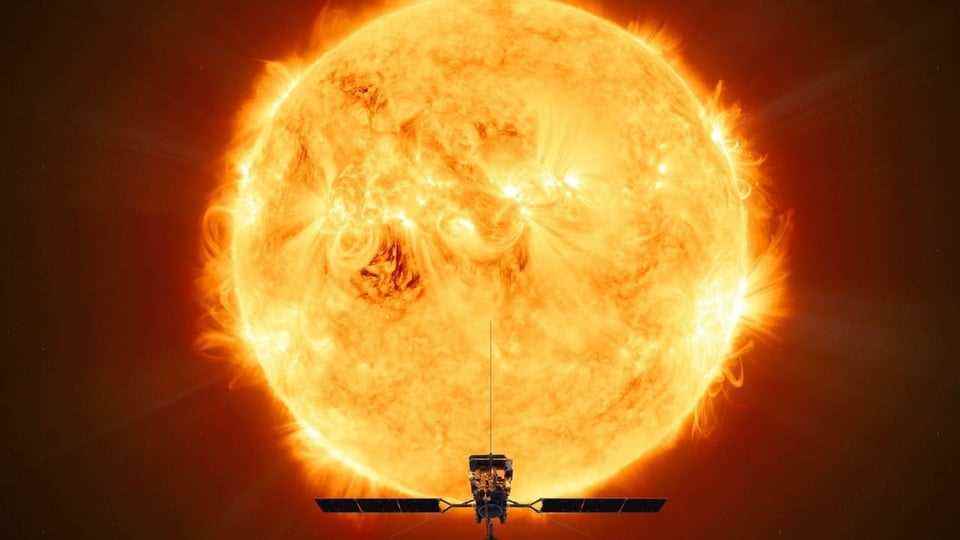- The war in Ukraine has divided the West and Russia. This is also reflected in cooperation in space.
- The European Space Agency ESA – of which Switzerland is also a member – has turned its back on Russia.
- Because space projects tend to be long-term, collaboration is limited to years, if not decades.
The International Space Station ISS orbits 400 kilometers above the earth. Currently on board are three Russians, one female and two astronauts from the USA and one scientist from Italy. Up there, cooperation with Russia has worked until now.
“Of necessity,” says ESA Director General Josef Aschbacher: “Here we nominally work together. Because everyone is dependent on the other. We have no choice but to work closely together and rely on our partners Russia, Canada, Japan and the US.”
Russia wants to get off the ISS
But soon there will soon be no more Russians on the space station: the Russian space agency Roskosmos announced today that it will no longer be involved in the ISS from 2024.
On the ground, ESA stopped cooperation immediately after the Russian invasion of Ukraine. According to Aschbacher, the current geopolitical situation and the sanctions imposed by the ESA member countries would have made further cooperation impossible.
Cooperation with private rather than Russia
An example is the ExoMars project; ESA stopped working with the Russian space agency this spring. The project envisaged exploring Mars with a research robot. The start was originally planned for this year. Now the mission has to be postponed because a Russian Soyuz rocket should have launched the robot into space.
At the same time, Aschbacher emphasizes that the Europeans should stick to their own rocket programs and not just rely on private transport rockets like those of SpaceX (see box): “With satellites, we have an infrastructure on which we depend in everyday life – for weather forecasts, Navigation, earth observation and much more. We need the certainty that we can send our satellites into space.”
Shattered Porcelain
That’s why he also defends the program for the new Ariane rocket, even if the project repeatedly causes criticism because of the high costs. But the fact that there are now alternatives to Russian technology makes it easier for the European Space Agency to end cooperation with Russia.
It will be very difficult to find normal cooperation with Russia again. Too much porcelain was smashed.
The Russian war of aggression in Ukraine will therefore continue to have an impact on space projects for years to come: “It will be very difficult to find normal cooperation again with Russia,” says Aschbacher. “Too much china was smashed. We have become aware of how closely intertwined we are with the Russian space economy. The danger would be very great to get into the same situation again in the future.”

Legend:
With the departure from Russia, ESA and NASA are likely to work even more closely together in the future – as with the Solar Orbiter space probe, which explores the polar regions of the sun.
Keystone/ESA
In addition, space projects take several years from the idea to implementation: This is one of the reasons why the break with Russia will last for a long time. The ESA will now cooperate even more closely with the American space agency Nasa – and fundamentally advance its projects even more independently than before.
